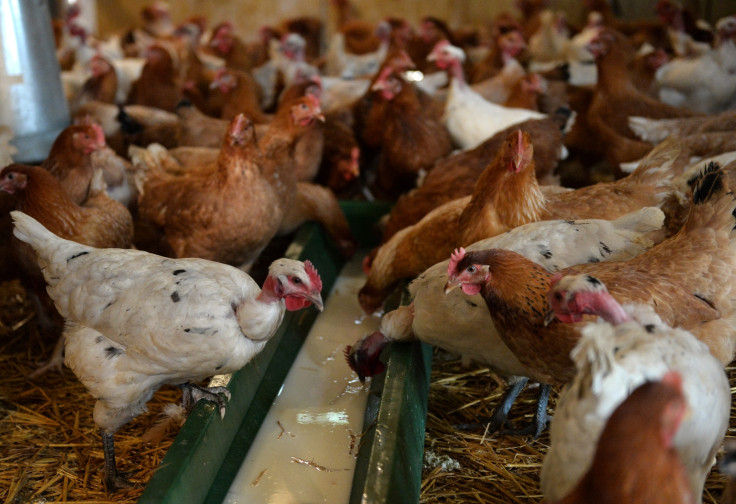Halal slaughterhouse boils 81 chickens alive after equipment failure at Suffolk factory
Meat company forced to pay £14,000 in fines and costs after admitting causing unnecessary suffering to birds.

A halal poultry company supplying major supermarkets in Britain has admitted failings after its factory workers boiled chickens alive.
Faulty equipment at 1Stop Halal slaughterhouse in Eye, Suffolk, meant some 81 birds suffered an agonising death when they were plunged into scalding water over a period of four months.
The company, co-owned by "chicken king" multi-millionaire Ranjit Singh Boparan, was this month fined £8,000 and ordered to pay £6,000 costs after admitting causing unnecessary suffering to the chickens, The Times reported.
The slaughterhouse uses an electrically charged water pool to stun the birds, before their throats are cut and the dead birds are placed in boiling water to loosen their feathers.
Some chickens are also killed without being stunned to cater for Muslims who do not accept that meat from animals which have been stunned is halal.
But an incident, on 6 July last year, saw the water pool stop working, which meant workers were forced to cut the throats of the 60,000-100,000 chickens that pass through the factory daily while they were still alive.
An argument between two workers over the poor quality of the cutting reportedly followed, with 64 birds entering the scalding tank alive.
What makes meat 'halal'
"Halal" is the Arabic word for "permitted". In the the context of meat production, it refers to a set of rules that must be followed when raising and slaughtering livestock.
For meat to be classed as halal, the animal must be blessed by an imam before it is killed by having its throat slit in one movement with a surgically sharp knife. It must be then be hung, so the blood must be drained, as eating blood is forbidded – "haram". This process is called "zabiha".
Animals slaughtered for halal meat are usually stunned with electricity before being killed. However, as some Muslims do not accept meat from animals slaughtered after stunning is halal, some animals killed for halal meat are alive when their throats are cut.
Islam also governs how the animal must be raised for its meat to be halal: they cannot be mistreated, have pain inflicted on them, and must be have access to space to roam, clean water and food, and fresh air.
The rules for slaughtering meat under Islam are similar to the rules of the Jewish faith, which govern kosher meat production. Due to this, Jews and Muslims are permitted to eat halal and kosher meats, so long as the food meets their faith's other rules (such as not containing alcohol for Muslims).
The company suggested in a statement all 81 birds had died in that single incident, but The Times reported there were nine more occasions over the next three months, with each seeing between one and four birds boiled alive.
The separate episodes were detected during post-mortem examinations by meat hygiene inspectors employed by the Food Standards Agency.
1Stop Halal said: "We deeply regret the circumstances which occurred on the 6th July, 2015, during our non-stun slaughter when up to 81 birds were caused unnecessary suffering. This occurred on our first day of operating the facility at Eye and involved a degree of human error. Employees who were involved in the incident no longer work for the business.
"Since this incident the company has invested substantially in further training [and] improved control systems and have processed more than 30 million birds."
Morrisons, Asda, Tesco and Sainsbury's supermarkets said they all sold meat from 1Stop Halal or its subsidiary, Shazans, which also uses chicken from the Eye plant.
The 81 chickens involved were said to have been disposed of and not sent to retailers.
The incident led to calls from vegan animal welfare charity Animal Aid for "tighter slaughterhouse regulation to ensure that these vulnerable animals do not spend their final moments in agony".
© Copyright IBTimes 2025. All rights reserved.




















